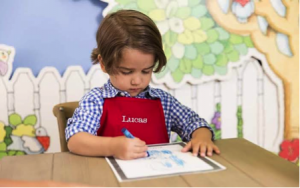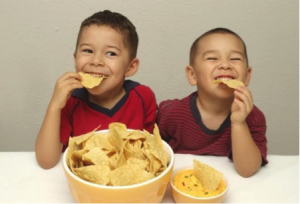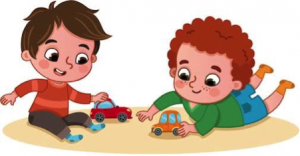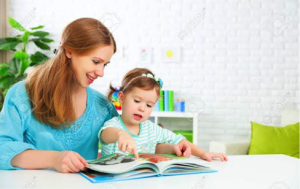Strategies to improve core vocabulary in children
Strategies to improve core vocabulary in children
 Core vocabulary therapy activities refers to simple words that we use frequently on a daily basis. These words can have many meanings and are relevant across context. Examples of core vocabulary words are stop, go, get, more, on, off, up and down etc. By using these words, an emergent communicator can take control of their environment, have their needs met and interact socially with their friends and family. Eventually, these words will guide them to make phrases such as – get that, go up, turn that off, go more and get down.
Core vocabulary therapy activities refers to simple words that we use frequently on a daily basis. These words can have many meanings and are relevant across context. Examples of core vocabulary words are stop, go, get, more, on, off, up and down etc. By using these words, an emergent communicator can take control of their environment, have their needs met and interact socially with their friends and family. Eventually, these words will guide them to make phrases such as – get that, go up, turn that off, go more and get down.
Read a detailed blog on Myths about children learning to talk
Here are the fun filled home activities to work on developing core vocabulary for emergent communicators.
Playing with toy cars
It’s a favorite activity for many children. This activity creates opportunity for your child to learn the following core vocabulary words.
At 1-word level:
- Go – Model and teach this word while making the cars move or to initiate a race.
- Stop – Allow your child to direct you to make the cars “stop.”
- Up – Have your child use this word while pushing a car “up” a ramp or move up in a toy garage.
- Down – Use this word while allowing cars to race “down” ramps or racetracks.
- Come – Teach this word to encourage your child to ask you to “come” and follow him/her when pushing toy cars.
At 2-word level:
Core vocabulary therapy activities
- Go up/down
- Go in/under/next to, etc – Teach prepositions when making cars go in/under/next to tunnels, furniture or toys.
- Push it – Model this word when initiating movement with the cars.
- Go fast/slow – Allow your child to direct the speed of movement of the cars by using these simple adverbs
Phrases:
- Push the blue car
- Make it go fast
- You push that
- Go under that
- Go down fast
Coloring
It’s a part of many children’s routine that can be used to develop the following core vocabulary words.
At 1-word level:
- Open/Close – Use these words when accessing art supplies from cabinets or drawers, getting crayons or markers out of their boxes and taking off or putting on marker tops.
- Stop/Go – Model these words when drawing on the page; make it a game and allow your child to direct you draw and stop drawing on a page.
- Up/Down – Teach these concepts while drawing in different directions. Placing the paper on a vertical
At 2-word level:
- Open blue/red/yellow/etc. – when taking off a marker top, or opening paint colors
- Color that
- On paper/wall/body parts – Teach the preposition “on” while allowing your child to direct where to color, paint or stamp. For a messy, silly game, let your child ask to have his/her (or your) body parts drawn on!
- Color more
Phrases:
- Color that red
- Open the blue one
- That’s mine
- Color on my arm
- Get more (colors, paper, markers)
Snack
Utilize this opportunity to model/use/teach the following core vocabulary words.
At 1-word level:
- Open – Have your child direct you to open cupboards in the kitchen or his/her lunchbox to access a snack and to open bags or containers holding the food.
- Eat – Model and teach this word while taking bites of a snack.
- Drink – Model and teach this word while taking a drink.
At 2-word level:
- Get that – Allow your child to request access to different foods from the cupboard
- Eat/drink more
- Open that
- You eat/drink
- My drink
Phrases:
- It’s time to eat
- I am hungry
- I like/don’t like it – Model comments like this while eating.
- I need (that, more, spoon, plate) – gently sabotage your child’s routine by “forgetting” to give him/her a necessary utensil or item for his/her snack routine.
Dress-up
Many children enjoy playing dress-up with fun clothes and accessories. This activity allows you to interact with the child and facilitate the following core vocabulary words.
At 1-word level:
- On/off – Let your child direct you to put on/take off hats, gloves, etc.
- Open– Use this word while opening boxes, drawers or closets with clothes inside
- Close – Teach this word when closing zippers or buttons on clothes
- Turn – Model and teach this word while turning around to show off silly outfits
- Look – Teach your child to use this word to draw attention to him/herself
At 2-word level:
- Open it
- You turn
- Get more
Phrases:
- Put it on
- Take it off
- Look at me
Tips to improve speech clarity in kids
Reading
Use this opportunity to teach the following core vocabulary words for children who enjoy reading and looking at books/magazines.
At 1-word level:
- Read – Your child can use this word to request to read a book, or direct you to read a line of text
- Open – Use this word when opening a book or a magazine
- Close – Model and teach this word when closing the book
- Turn – Let your child direct you to turn pages in a book or magazine using this word
- Look – Use this word when pointing and directing your child’s attention to pictures in the book or magazine.
At 2-word level:
- Open it
- Close it
- Read it
- Read more
- Turn it
- Look here
Phrases
- Turn the page
- Read it again
- Read to me
- Look at that
- What is that?
Core vocabulary therapy activities
Tips for babies and young children learning to talk
Silly Social Play
Since children get fascinated by silly social play and directing other people’s behavior, you can use this opportunity to facilitate the following core vocabulary words in your child’s repertoire.
At 1-word level:
- Sleep – Pretend to fall asleep when your child uses this word
- Turn – Let your child tell you to turn around in a circle
- Sick, sad, angry, happy, scared – Let your child direct you to act out these emotions/feelings. The more exaggerated you are, the more fun your child might have.
- Fall – Let your child direct you to fall down
- Silly – Make wacky facial expressions and noises if your child directs you using this word.
- Stop – Your child can use this word to make you stop turning, sleeping or acting in different ways
- Come/Go – Your child can use these words to direct you to come to them or go away
At 2-word level:
- Get up – Let your child use this phrase to get you up after you have “fallen asleep” or “fallen down”
- Be sick/Get scared
- Fall down
- Turn around
- Be silly
- Stop it
- Come here
- Go away
Phrases
- Go to sleep
- You be sick
- You get scared
- Make a silly face
Once you are aware of more core vocabulary words, you can support the learning of these words in any play situation. Check out this link for more core vocabulary words. There are endless opportunities for you to incorporate the core language into your child’s daily routine.
Source – https://liberator.net.au/pub/media/wysiwyg/Core_Vocabulary_Activities.docx.pdf
- Best Books for Children with Autism Spectrum Disorder - December 20, 2022
- Selective Mutism - November 13, 2021
- Everyday Items as Awesome Toys: Play Dough - July 27, 2021




Leave a Comment
(0 Comments)